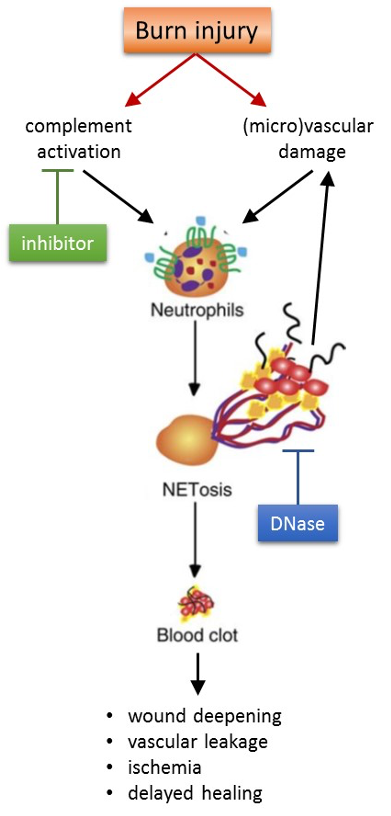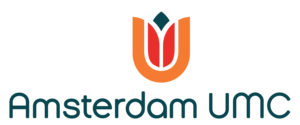Neutrophil extracellular traps drive burn-induced thrombosis and wound deepening
Wound deepening severely worsens scarring, infection and mortality after burn injury and hence has a severe and life-long physical and mental impact. Currently no treatments exist to prevent it. To address this problem we have brought together experts from both academia and pharmaceutical industry. The resultant consortium combines expertise on burn wounds, inflammation, vascular biology, thrombosis and pharmacology, with participants from Amsterdam UMC, Dutch Burn Centre, Sanquin Research Amsterdam and Pharming.
This project will determine how burn-induced wound deepening occurs and will test new therapeutics to prevent burn wound deepening. Hence, its outcome can improve the vital functioning and quality of life of burn victims. Moreover, there are indications that the causes of wound deepening, are also responsible for tissue damage in other medical conditions. Therefore, this project may have a wide societal and economic impact.
The previous studies point to a process called neutrophil extracellular trap formation (NETosis) as a key driver of burn wound deepening. In this project it will be will be determined why NETosis occurs after burn injury and how it contributes to wound deepening. Then it will be studied the effect on burn wound deepening of different therapeutic approaches that target NETosis. Due to scientific and ethical reasons and with the help of health and life sciences professionals, as well as recovered burn wound patients, this proposal was designed in such a way that the research questions can be answered without the need for animal experiments. Instead, the studies will be conducted in human in vitro skin and blood vessel models and will be verified in cells, blood and skin from burn patients.




